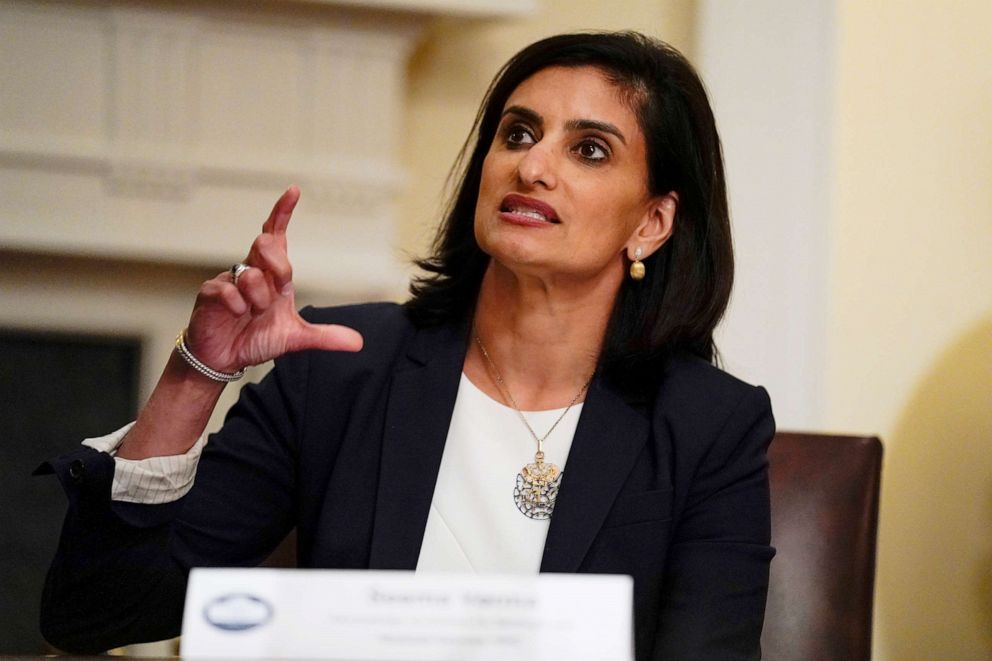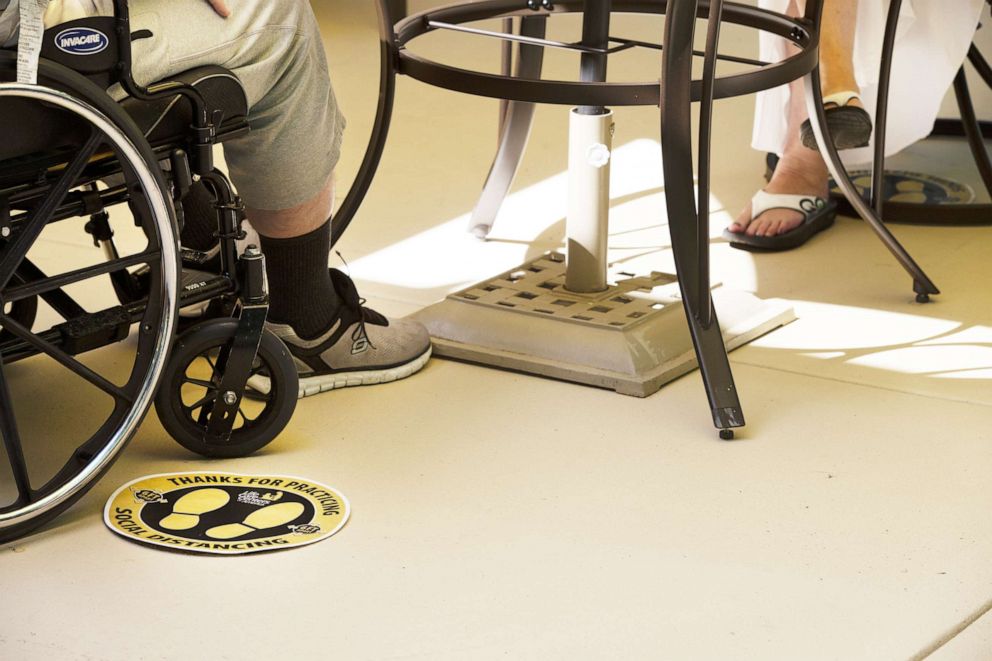In coronavirus fight, new mandate for nursing homes: Test or face fines
Trump admin. rolls out new rules, training program for nursing home staff.
Nursing homes that fail to test residents and staff for coronavirus could face fines under new measures announced by the Trump administration Tuesday, part of what officials called a “dramatic ramp up in our efforts” to address the steep toll the virus is taking on some of the most vulnerable Americans.
“The testing requirement is very critical,” said Seema Verma, the administrator at the Centers for Medicare & Medicaid Services, the federal agency that regulates nursing homes. “You can see that it’s part of an overall strategy.”
While the agency has been recommending widespread testing for months, this is the first time nursing homes could see financial consequences for failing to test residents or staff if there are hints of an outbreak, like symptoms of COVID-19 among residents or staff.
“What that means is that, if a nursing home is not compliant with this, they are subject to fines and penalties,” Verma said in an interview with ABC News.

Verma said the cost of widespread testing has proven to be a barrier for some nursing homes, so the Trump administration is helping facilities offset the cost of testing with new funding from the Provider Relief Fund, which was announced by President Trump on July 22. Verma said nursing homes will receive $2.5 billion for testing.
Federal agencies have also tried to address that concern by providing point-of-care testing kits to 15,000 nursing homes around the country and more than $5 billion in broad financial support from a series of rescue packages passed by Congress.
On a press call today, Assistant Secretary of Health Adm. Brett Giroir said that over 2 million tests have been delivered to over 5,500 nursing homes. Giroir added that the rest of the testing kits will be delivered to over 14,000 nursing homes by the end of September.
Verma told ABC News her agency would be dispatching inspectors to nursing homes to make sure they are adhering to the testing rules. Facilities that do not comply, she said, could face enforcement sanctions including fines of $400 per day, or over $8,000 for each instance of noncompliance.

Mark Parkinson, President and CEO of the American Health Care Association and National Center for Assisted Living, said today's announcement was an "important step" in getting timely tests to nursing homes, but he said had questions about the implementation of the new policies, including how frequently the tests must be conducted and what to do about delays in test results.
"Otherwise facilities could face fines for circumstances beyond their control and be conducting tests that are so delayed that they have little clinical value," he said, adding that "none of these concerns diminishes our support for broad and mandated testing, as long as it is possible to implement."
Tuesday’s announcement came as the agency discussed several other steps the government will be taking, including a new national training program that aims to provide clear guidance for front-line workers on how to protect residents from the contagion.
Federal officials said the training program is based on lessons learned during the opening weeks of the outbreak, when scores of nursing homes were overrun by the virus, leading to thousands of deaths. Nursing homes remain one of the deadliest settings of the pandemic -- and still account for roughly 40% of all coronavirus deaths, according to a recent ABC News analysis of state health data.
The training program unveiled Tuesday focuses on the importance of screening visitors, isolating residents who test positive, safe admission and transfer of residents, and the proper use of personal protective equipment.
Those new training measures come on the heels of studies that show that among the key defenders against the coronavirus are nursing home staffs themselves.
A study released last week by The Journal of the American Medical Association (JAMA), found that across eight states those facilities that were able to maintain more, qualified staffing in the homes had fewer COVID-19 cases than staffing in homes the study rated as low-performing.
The report acknowledged the importance of infection control practices but pointed out that policies that provide immediate staffing support “may be more effective at mitigating the spread of COVID-19.”
Verma said her agency has seen similar patterns and acknowledged that increased testing of staff will put added pressure on facilities as they are forced to sideline healthcare workers who test positive. She said federal strike teams have been sent to assist nursing homes when staffing shortages became acute, and the federal government is “prepared to provide back-up” to nursing homes.
“If there is an outbreak in a nursing home, you have to send home workers. I can tell you that HHS [Health and Human Services] and FEMA [the Federal Emergency Management Agency] stand ready to assist nursing homes,” Verma said.
Eric Carlson, a long-term care expert with the advocacy group Justice in Aging, previously told ABC News that when facilities don’t have enough staff, residents suffer from lower quality of care.
“When nurse aides are responsible for too many residents, they don’t have the time to follow the proper infection prevention procedures,” said Carlson. “It’s penny wise and pound foolish for facilities to short-staff facilities, since this research shows that overworked staff leads to infections and deaths.”
What to know about coronavirus:
- How it started and how to protect yourself: Coronavirus explained
- What to do if you have symptoms: Coronavirus symptoms
- Tracking the spread in the U.S. and worldwide: Coronavirus map



